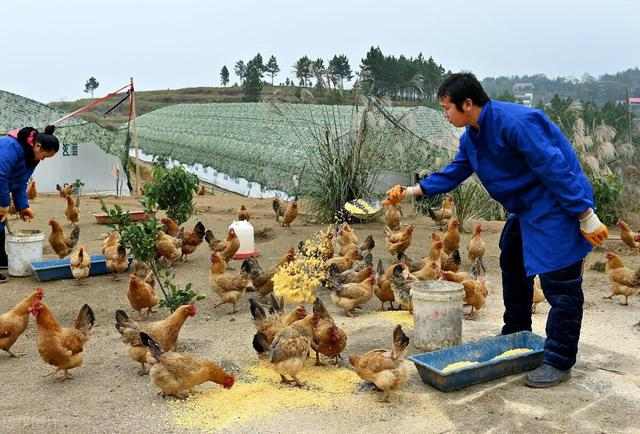The body temperature of chickens is relatively high, at 41-42 ℃, the whole body has feathers, chickens do not have sweat glands, not able to sweat, can only rely on respiration to dissipate heat, so the ability to tolerate high temperatures is poor. The impact of heat stress on laying hens caused by the high temperature and high humidity environment in summer is extremely significant, and it is also the core node of laying hens breeding management. There are usually the following effects:
1, laying hens due to increased water intake and decreased feed intake, resulting in decreased egg production rate, egg weight and egg quality.
2, high temperature, high humidity environment caused by the chicken coop harmful gas content is too high.
3、Favourable to the survival of pathogenic microorganisms.
4, long-term heat stress caused by the body immunity decline, easy to induce disease, seriously affecting the production performance of laying hens.
So, how to effectively cope with it? Here are some tips to deal with high temperature and high humidity environment in summer, just for your reference.
Water
The specific heat of water is large, and has a regulatory effect on the body temperature of chickens. In summer, you can reduce body heat by drinking a lot of water, first of all, keep the water cool, the water temperature should be 10~30℃. When the water temperature is 32-35 ℃, the chicken’s water consumption will be greatly reduced, when the water temperature reaches 44 ℃ or more, the chicken will stop drinking. In a hot environment, if the chicken does not drink enough water or the water temperature is too high, the heat resistance of the chicken will be reduced. Allowing the chicken to drink cold water can stimulate the chicken’s appetite to increase the amount of food intake, thus increasing egg production and egg weight.
Food
(1) Improve the nutritional concentration of feed. Summer heat, the chicken appetite is poor, feed intake is reduced, nutrient intake is also reduced accordingly, which needs to be compensated with diets containing higher nutrient concentration. Therefore, in the high temperature environment, when the chicken’s intake is reduced, appropriate reduction in the amount of cereal feed such as corn, while moderately increasing the energy level of the feed (or add about 1% vegetable oil to solve the problem), will be more helpful to increase the body weight of the chickens, so as to maintain the stability of the production level of the flock.
(2) Reasonable addition of vitamins. Vitamins should be added regularly to the feed, especially to raise vitamin C. However, the anti-heat stress effect of vitamin C is not unlimited, and vitamin C has no effect when the ambient temperature exceeds 34℃.
Hygiene
(1) Spray disinfection with chickens. Spray disinfection with chickens in summer not only has the effect of killing pathogenic bacteria and purifying the air in the house, but also reduces the temperature of the house (4 ℃ ~ 6 ℃ or so), spray disinfection is currently the more ideal disinfection and cooling measures (preferably in the morning at 10 o’clock and 3 o’clock in the afternoon). But pay attention to the speed of spraying, the height should be appropriate, the droplet diameter size should be moderate, the disinfectant used must be highly effective, non-toxic side effects, and strong adhesion, irritating odour, so as not to cause respiratory diseases.
(2) Diligent cleaning of chicken manure. Summer manure is thin, high humidity, chicken manure is very easy to ferment and produce ammonia, hydrogen sulfide and other harmful gases or other odours, easy to induce respiratory diseases, so the house manure and bedding should be cleaned up in a timely manner (at least 1 day 1 time), to prevent contamination, to maintain cleanliness and hygiene in the house, dry and hygienic. Can also be used to absorbent bedding such as sawdust, dry coal ash, etc. first sprinkled on the chicken manure and then clear, so that both reduce the temperature, keep the ground dry, but also easy to clean.
(3) Regular drinking water disinfection. In summer, drinking water pipes (sinks) are prone to bacterial growth and bacterial diseases, especially digestive diseases, so disinfect the drinking water at least once a week or more, and drink as you drink.
Prevention
Chicken population in summer is relatively weak, we should follow the scientific control of chicken disease occurrence of hygienic epidemic prevention procedures, according to the age of different chickens, respectively, injected with a variety of vaccines, to reduce the chances of primary or secondary infection of disease.
https://www.incubatoregg.com/ Email: Ivy@ncedward.com
Post time: Jun-28-2024





